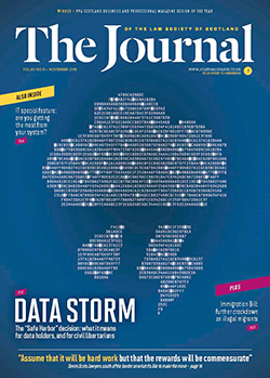A lawyer's lament

I have just finished watching The Trip, a six-part series in which comedians Steve Coogan and Rob Brydon pootle round the north of England in a Range Rover, dine at foodie shrines and talk magnificent nonsense.
I made the mistake of watching it on a train to London, at constant risk of a double hernia. Driven beyond endurance by the strangulated cackling, a woman beside me moved, pointedly, to the most distant seat she could find. I understood.
In episode 4, the pair discuss how they would love to star in a historical drama, prancing about in doublet and codpiece, bellowing, “Gentlemen! To bed! For tomorrow, we ride at daybreak!” Why, they ask, is it always “daybreak”? How does anyone know when to turn up? Surely “Gentlemen! To bed! For
Now, you may think this just reflects how sad my life is, and I wouldn’t argue, but mid-cackle it occurred to me that when lawyers fall out with clients over fees, it is usually because they have applied the “daybreak” principle. Vagary
We can learn a lot from builders. They itemise every job precisely, so that when, as they expect, something unexpected turns up, they can propel us to penury in a symphony of teeth sucking. Scoping is a skill. Large law firms, used to quoting on complex assignments, tend to be good at it. Smaller firms are often less accomplished, and reluctant to go into detail in case the client is turned off. Yet for everyone, good
There are five basic questions:
- What does success look like?
- What will you do?
- How will you do it?
- Who will do it?
- What must the client do?
1 What does success look like?
Clients are paying not for time, but results, so it matters greatly to agree at the outset: What are the goals to be achieved? What are the realistic prospects? What are the obstacles and constraints? How long is it likely to take?
2 What will you do?
Break the job down into its constituent tasks, and using your experience, allocate the time and resource needed for each one. Remember to include all the post-completion work, which can be such a drain on time and margin. Draw up a template showing the breakdown, and share it with your client. This dicing and slicing will make it much easier for you to calculate the cost accurately, and your client to understand how you have done it. Clients love transparency. They may quibble some item, but better they do it at the beginning than the end. Dealing with issues upfront will result in an agreement that is clear and robust. Having a set of templates for your most common instructions allows you to approach
pricing discussions with confidence and flexibility.
3 How will you do it?
As I have discussed previously, without lean, effective processes, good margins are unachievable. Seeing each job as a series of individual tasks enables you to work out how best to do them, in what order, or whether they need be done at all.
4 Who will do it?
A good answer to this question is usually the most important factor in determining profit. Firms who achieve consistently high margins understand the importance of leverage, and are forensic about allocating the right level of person to each task. Be firm with hoarders, especially senior ones.
5 What must the client do?
The main focus will always be on your role, but be clear about the client’s responsibilities: to supply information promptly; maintain contact; advise of changes in circumstances; be candid, even if it may undermine their position; honour payment arrangements; be civil and reasonable. On specifics, where there is opportunity for clients to do things which otherwise their lawyer would do, and so save money, offer it. Not only is it often more efficient, the benefit to the long-term relationship will outweigh comfortably what is likely to be a small loss of revenue and even smaller loss of profit.
Managing your risk
Finally, every time you accept instructions, you take a risk. Addressing these questions guides you to a clear appreciation of the risks, and better decision making: How might they be avoided or accommodated? How are they to be priced? Should the job be taken on at all?
And therefore, Ladies and Gentlemen, to our templates! For tomorrow we fee from dawn till dusk!
In this issue
- Appropriate adults and defence agents: who does what?
- Buying from a housing association: why consent matters
- Harassment: a civil claim?
- A welcome abroad: EYBA in London
- Reading for pleasure
- Opinion: David Faith
- Book reviews
- Profile
- President's column
- ScotLIS gets the green light
- People on the move
- Storm over Safe Harbor
- Light on a murky world
- Southern horizons
- Mediation minefield
- Migrants: no way to turn?
- The technological edge
- As our suppliers see us
- More rules to grapple with
- Fraud and divorce – a Scottish Sharland?
- What future for employment tribunal fees?
- Heading for a showdown on hard won human rights?
- Taxing question of relief
- Scottish Solicitors Discipline Tribunal
- How far can we rely on the register?
- All part of the game
- Law reform roundup
- From the Brussels office
- Poverty: a new front in the war
- Damage limitation: working it out
- Ask Ash
- A lawyer's lament
- Appreciation: Michael Scanlan






